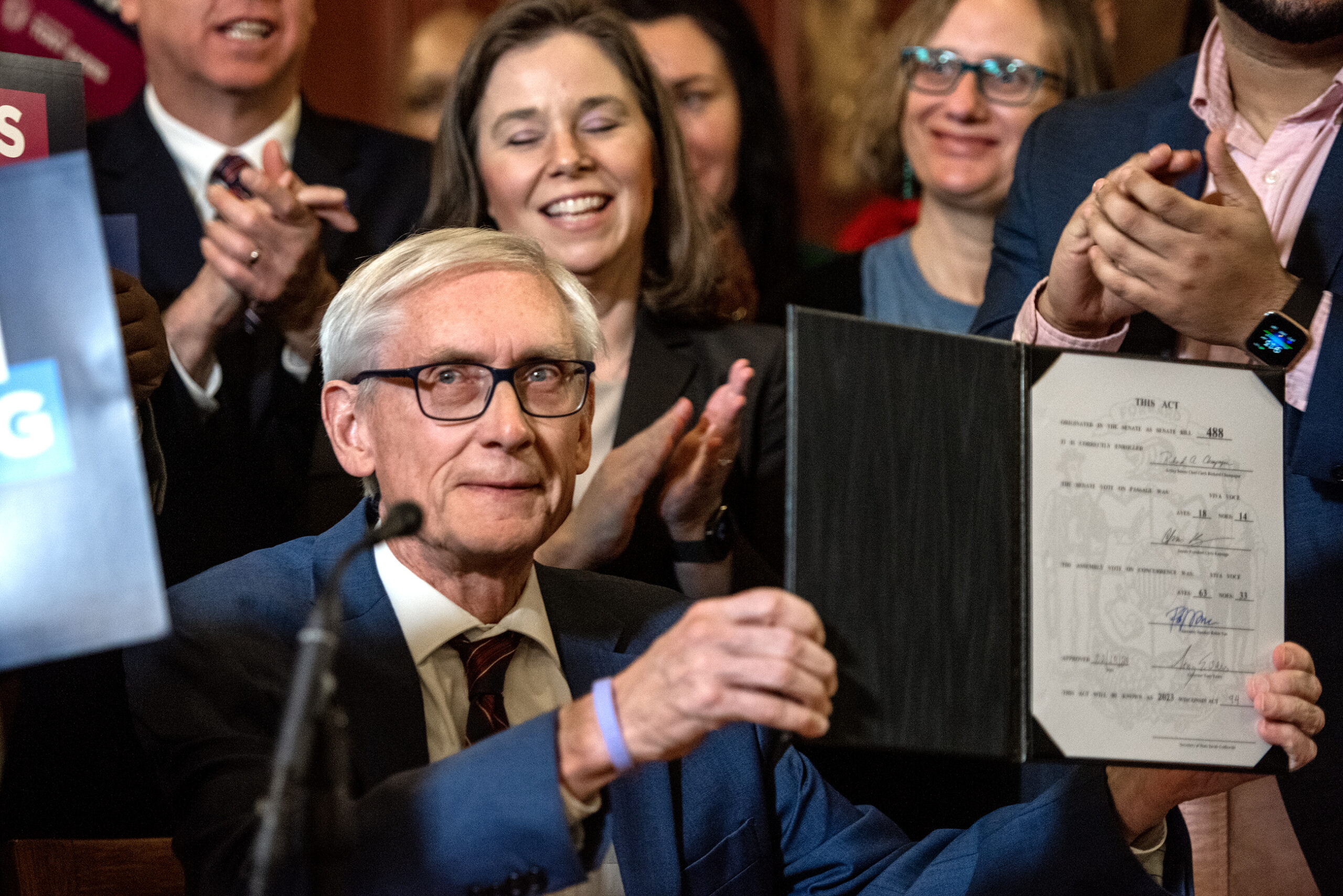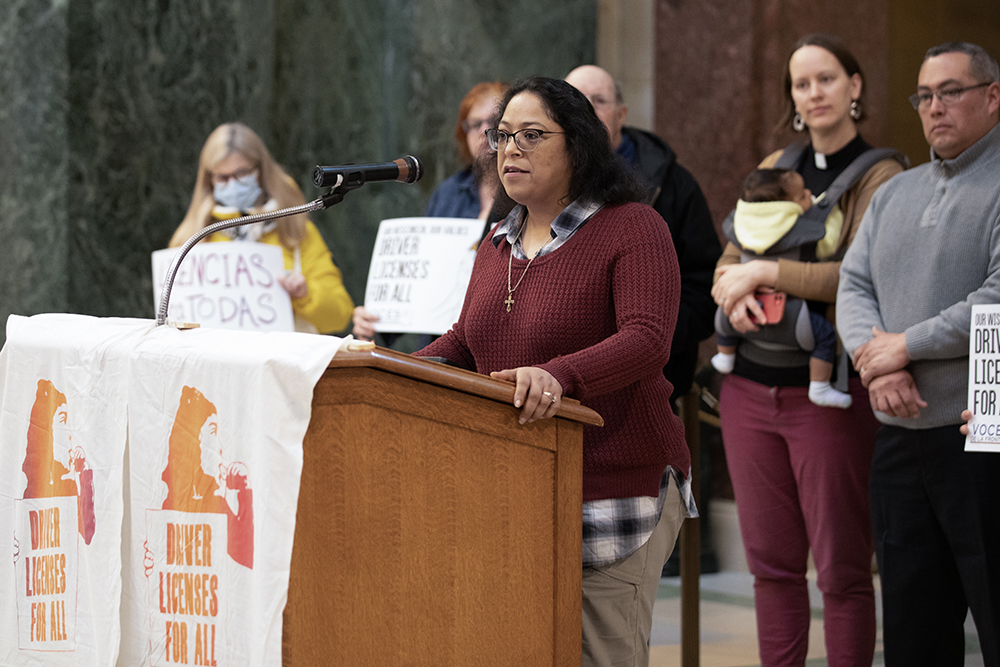A broad COVID-19 bill became even more mired in politics Thursday after Wisconsin Republicans backed away from a compromise with Gov. Tony Evers while at the same time linking the plan to an effort to end Evers’ statewide mask mandate.
Both moves raised the prospect that eight months after Republicans sent their first and only COVID-19 legislation to Evers’ desk, their latest proposal could be headed for a governor’s veto.
“We have no reason to believe that this bill is going to see the light of day,” said Senate Democratic Minority Leader Janet Bewley, D-Mason. “This is insulting to the people of Wisconsin. To make them think that all these good things are going to happen. It’s not.”
News with a little more humanity
WPR’s “Wisconsin Today” newsletter keeps you connected to the state you love without feeling overwhelmed. No paywall. No agenda. No corporate filter.
While the governor’s office did not immediately respond to a request for comment on the moves, the plan the state Senate passed Thursday includes provisions supported by Assembly Republicans that Evers had previously hinted might be “poison pills.”
To say that Evers and Republicans who run the Legislature have been regularly at odds would be an understatement, although there were signs earlier this month that at least on this bill they might sidestep the usual partisan fights.
Two weeks ago, Senate Republicans passed a bill that included many proposals Evers wanted, including a provision requiring health insurers to cover COVID-19 prescriptions, testing and vaccines.
In exchange, Evers agreed to support new restrictions on COVID-19 lawsuits, a priority of Republican lawmakers and Wisconsin’s business lobby.
At the time, GOP senators agreed to remove a handful of controversial Assembly Republican proposals. But after Assembly Republicans pushed back, Senate Republicans agreed to put some of the ideas back in the bill.
Those provisions, which are included in the plan that passed the Senate Thursday, include a ban on COVID-19 vaccine mandates, not only from state and local governments but also from private employers.
The Senate also agreed to an Assembly GOP plan preventing the state and local health officers from restricting gatherings in places of worship, a power that’s currently allowed in Wisconsin law.
Senators also agreed to an Assembly Republican proposal that would give the Legislature’s budget committee veto power over any federal funds related to COVID-19.
Ties To Mask Mandate
For the first time Thursday, senators also linked the COVID-19 bill to a separate effort to undermine the governor’s power to address the coronavirus.
On Tuesday, Republican Senators passed a joint resolution that would immediately cancel the emergency order Evers used to issue and repeatedly extend Wisconsin’s statewide mask mandate.
But a memo from the Legislature’s nonpartisan budget office released Wednesday showed that rescinding Evers’ state of emergency would result in state government losing roughly $49 million each month in federal food assistance funding for people with low incomes.
Senate Republicans added an amendment that would — at least in theory — prevent that loss of federal funds by letting the governor declare an emergency explicitly for the purpose of receiving federal funding.
“What we have done is to preserve those funds going forward,” said Sen. Steve Nass, R-Whitewater. “Now, if the governor were to veto this legislation, he would be the one killing $49 million.”
Before the plan heads to Evers’ desk, it first needs to pass the state Assembly, where Speaker Robin Vos, R-Rochester, said he wants to review whether Nass’ amendment would work as planned. The state Assembly postponed a vote on repealing the mask mandate, which had been scheduled for Thursday.
Also Thursday, the state Assembly passed two bills related to vaccines that are now headed to the Wisconsin Senate.
One, which passed by a vote of 90-1, would let more pharmacy students and technicians administer the COVID-19 vaccine. The other, which passed on a 57-36 party line vote, would require the state to make the COVID-19 vaccine available to the general public by March 15.
Wisconsin Public Radio, © Copyright 2025, Board of Regents of the University of Wisconsin System and Wisconsin Educational Communications Board.







